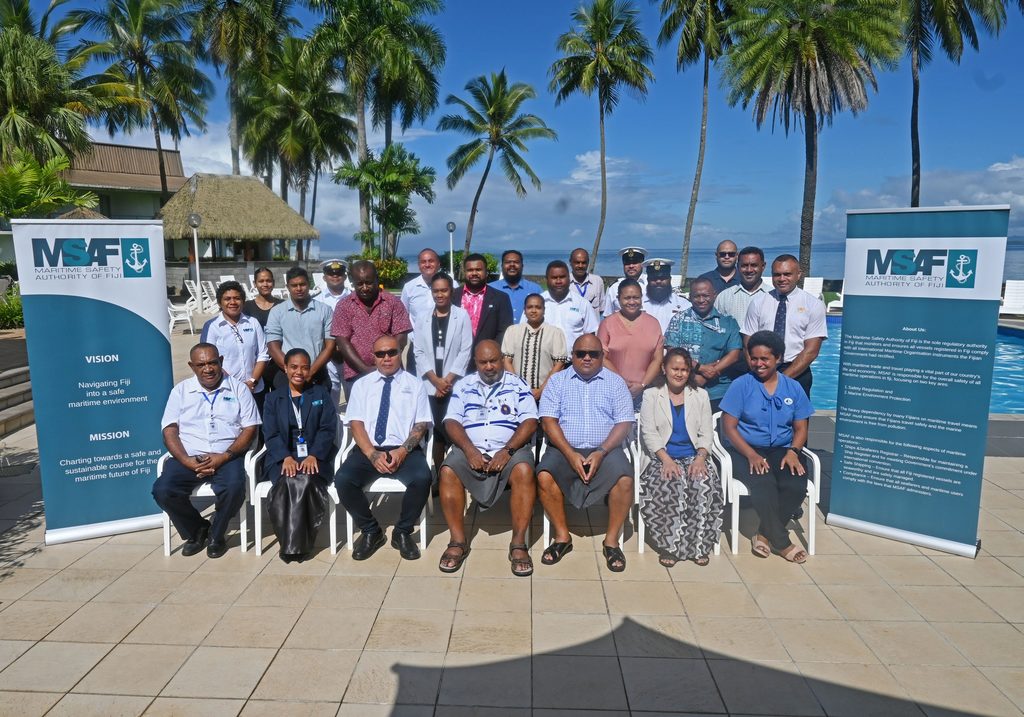THE third consultation phase of the Fiji International Maritime Organization (IMO) Instruments Compliance Strategy 2025-2030 two-day workshop was held this month in Suva.
The workshop was spearheaded by the Maritime Safety Authority of Fiji (MSAF) with key stakeholders in attendance.
Chairman of the National IMO Member State Audit Scheme (IMSAS) Steering Committee, Commodore Humphrey Tawake during the workshop said that a united approach was important to safeguarding the nation’s maritime borders and ensuring the sustainable growth of Fiji’s maritime industry.
Commodore Tawake called on the agencies and stakeholders present to collaborate closely in the pursuit of a safer and more secure maritime environment.
According to the Maritime Safety Authority of Fiji, the workshop marked an important milestone in the development of the Fiji IMO Instruments Compliance Strategy which will guide the country’s efforts to meet international maritime safety and environmental standards over the next five years.
MSAF’s manager ships and inspection, Captain Sesoni Komaisoso during his closing remarks said that the primary goal of the workshop was to establish an open forum where key stakeholders could engage in collaborative discussions to ensure Fiji’s ongoing compliance with international maritime standards.
Captain Komaisoso expressed his gratitude to the many stakeholders whose active participation and commitment made the workshop a success.
Throughout the workshop the participants worked together to enhance understanding of the roles each agency play in fulfilling their maritime obligations and elevate the significance of the International Maritime Safety Audit Scheme (IMSAS) and its important role in maintaining the integrity of Fiji’s maritime safety and regulatory framework.
During the workshop participants also identified gaps in the existing system and explored practical strategies to addressing those challenges head-on. They also fostered a culture of continuous monitoring and evaluation to ensure ongoing compliance with international maritime commitments.
The participants shared valuable best practices for effective monitoring and evaluation, strengthening the collective efforts of all stakeholders involved and forge stronger networks.
Stakeholders that were in attendance included the Ministry of Public Works, Meteorological Services and Transport, the Republic of Fiji Navy, the Telecommunication Authority of Fiji (TAF), Fiji Ports Corporation Ltd, the Office of the Attorney-General, the Pacific Centre for Maritime Studies and the Ministry of Home Affairs and Immigration.



